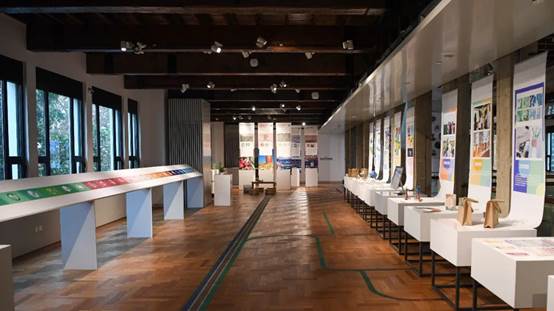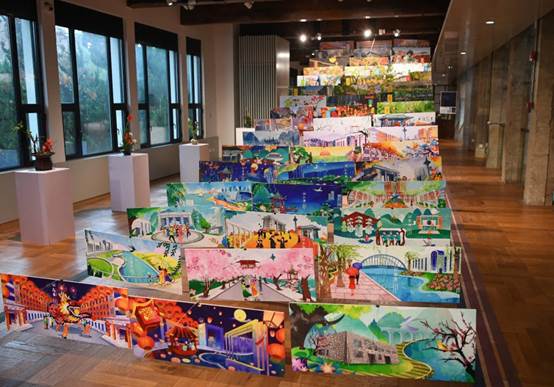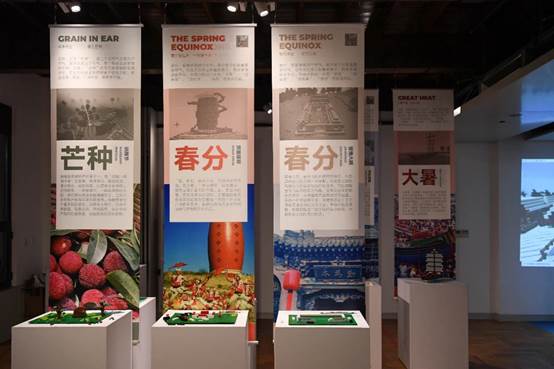The 24 Solar Terms, which begin at the Beginning of Spring (1st solar term) and end at the Greater Cold (24th solar term), are a product of an agrarian civilization. Ancient Chinese divided the circle of the annual motion of the sun into 24 equal segments. Each segment was called a “jie qi” or solar term, describing the alternation of the four seasons and the occurrence of natural events as well as expressing the unique concept of time between man and nature. It served to guide agricultural production and influenced the ancient people’s lifestyle and cultural ideas. The 24 Solar Terms are an essential part of the long history and culture of the Chinese nation. They contain the symbolic cultural connotation and historical progression of the Chinese nation, and embody the historical and cultural essence of Chinese civilization. The UN Educational, Scientific, and Cultural Organization (UNESCO) has adopted a decision that China’s “24 Solar Terms” be inscribed on the Representative List of the Intangible Cultural Heritage of Humanity on November 30, 2016. Hence it has been hailed as the “Fifth Great Invention of Ancient China” by the international meteorological community.

The College of Design and Innovation (CDI) first integrated the 24 Solar Terms elements into teachings of a design class. This course welcomed 24 master’s degree students majoring in industrial design, so that each student could choose one solar term as their design theme, and produce 24 creative works on the solar terms. The influence of these works and the enthusiasm of teachers and students for traditional culture, as inspired by this process, also stimulated our in-depth thinking on how to enrich people through traditional culture.

The 24 Solar Terms originated from an agrarian society, reflecting our ancestors’ compliance with the natural farming season. This response deeply incarnates the value and great wisdom that man should follow nature’s course and consider local conditions during the farming season. The 24 Solar Terms are the year’s segments, including harvesting and fallow seasons. A festival marks the passing of such seasons. It allows people to stop being passive in the face of nature and establish a harmonious and symbiotic relationship with it. The wisdom of labor has always been warm and happy, and there was never any lack of humanistic care as that which is promoted today. The 24 Solar Terms refer to something that makes survival a living thing, and the spiritual dimension that comes out of it gives ordinary life an extraordinary aesthetic quality. Its spiritual connotation transcends the division and definition of race, nation, country, or region as well as societal divisions related to agriculture, industry, design or culture. It has become an important cultural heritage for sustainable human development and makes us appreciate life’s wisdom and beauty. Such new concepts as “ecological design,” “green design” and “sustainable development”, which are now championed under modern designs, could more simply be read as “harmony between man and nature”.

At the National Conference on Ideological and Political Work in China’s Universities and Colleges, General Secretary Xi Jinping said universities and colleges should pay more attention to educating and inspiring people through culture. According to the Overall Plan for Coordinately Advancing the Construction of World First-class Universities and First-class Disciplines, China’s universities and colleges should absorb the essence of China’s excellent traditional culture, so as to inherit and innovate it and give full play to its educational role. After the design project, we organized the Party members and students of the CDI to participate in the planning and holding of an exhibition, entitled: Oriental Implications with a Thousand-Year History: Creative Works of the 24 Solar Terms. On the official opening day of the exhibition, which coincided with the Greater Snow (21st solar term), students and teachers visited the Tongji University Museum to experience its unique cultural charm. The exhibition space comprised five parts: JIE · TSI, JI · JIE, QING · JIE, JIE · XIANG, SHI · JIE.
The exhibition, under the theme of the 24 Solar Terms, is not intended to showcase the dazzling beauty of nature, nor is it a desire to conjure a leisurely nostalgic feeling for the days when there is a fallow season, nor is it an advocate for returning to the past in the era of informatization and globalization. Enriching people is like farming. Only when seedlings have roots deeply planted in the soil can they blossom and bear better fruit. Good design also needs to inherit excellent culture and pay attention to real life. It can help us obtain the internal motivation needed to pursue a better life, integrate rich traditional culture with daily life, and make our everyday living better.

As a classical Chinese poem goes, “The good rain knows how to choose the right season. When spring arrives, it immediately falls on the earth. It sprinkles down in the night along with the spring winds, moistening and nourishing everything in the world, exquisitely and silently”. The ancient wisdom and philosophical thinking in the 24 Solar Terms nourish both teachers and students’ hearts. It is not revolutionary, but rather a process of “moistening and nourishing everything in the world, exquisitely and silently”. It takes ten years for a tree to grow to its full height, but a hundred years for qualified personnel to mature―it takes long years to enlighten people. We hope to present a “Tongji Season” with the beauties of spring and carpet of flowers by fostering traditional culture and deepening the “Three All-around Education” concept.
Source: https://news.tongji.edu.cn/info/1003/76575.htm